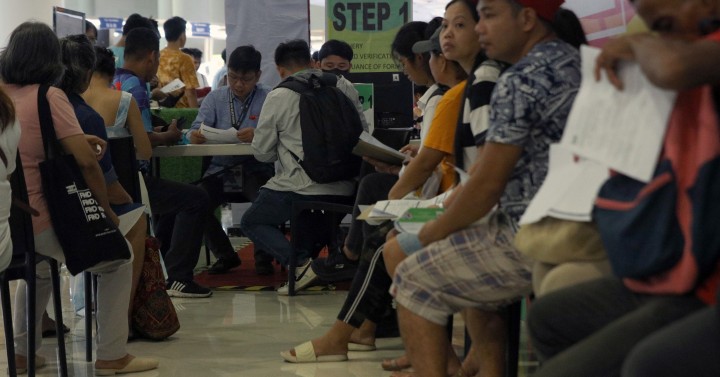Fueling the Future: Self-Service Gas and Electric Charging on the Horizon
A significant shift is on the horizon for Argentina‘s fuel industry, as the government prepares to implement groundbreaking changes to gas station operations and electric vehicle (EV) charging infrastructure. Minister Federico Sturzenegger, who oversees deregulation and transformation, revealed at the Petroleum Club’s annual lunch that a new decree paving the way for these changes is ready for publication in the coming weeks.
Pump Up the Self-Service
“Why do we have a law that says you can’t distribute your own fuel?” Sturzenegger posed, highlighting the absurdity of current regulations. He argued that the focus should not be on security but on consumer freedom. “We should be able to organize business relationships in the most free way we want,” he emphasized.
This desire for greater freedom translates into a future where Argentinians potentially pump their own gas, just like in the United States and parts of Europe. Currently, Argentina’s consumers are accustomed to attendants fueling their cars at gas stations, but Sturzenegger envisions asistema ³where drivers take charge, potentially leading to shorter wait times and greater efficiency.
The minister drew upon an example from Argentina’s quickly changing energy market: YPF’s implementation of self-service refuelling in Rosario. This initiative, born out of necessity, demonstrated the practicality of self-service options.
Charging Ahead into an Electric Future
The decree also tackles the growing need for accessible EV charging stations. As electric car ownership rises in Argentina, Sturzenegger anticipates a demand for convenient charging options. He envisions a future where EV owners can conveniently charge their vehicles while shopping, dining, or running errands.
“When you have an electric car and you go to a restaurant, you’re going to want to charge the car, and when you’re eating at a restaurant, or if you go to a mall, you’re going to want to charge it.…When you’re shopping in a mall, you can use a car,” he explained. This forward-thinking approach aims to seamlessly integrate EVs into everyday life, encouraging adoption and reducing range anxiety amongst potential buyers.
Rethinking Gas Station Sizes
In a bold move to cater to the evolving needs of the energy market, the decree also tackles restrictive size regulations for gas stations. Sturzenegger aims to liberalize these rules to allow for greater flexibility and innovation in station design.
“We have also had a full discussion on the size of gas stations. We want to completely liberalize the size restrictions, which are very strict,” he stated.
This relaxation of size restrictions could pave the way for larger stations offering more amenities, potentially incorporating convenient stores, restaurants, car washes, or other services, transforming them into multifaceted destinations.
Sturzenegger expressed confidence that the decree would contribute to further deregulation and growth in Argentina’s energy sector. “The decree has been written and is already in the process of becoming self-sufficient,” he concluded, signaling a powerful step forward for Argentina’s energy independent future.
What are the potential benefits and drawbacks of transitioning to a self-service gas model in Argentina?
## Fueling the Future: Self-Service on the Rise?
**Host:** We’re talking today about the upcoming revolution in Argentina’s fueling landscape. Joining us is Emerson Heights, an independent energy analyst who has been closely following these developments. Emerson, thanks for joining us.
**Emerson:** Thanks for having me. I think Argentina is poised for some exciting changes in how we think about filling up our cars, both gasoline and electric.
**Host:** Let’s start with this idea of self-service gas. It seems Minister Sturzenegger is keen on freeing up the market. What are your thoughts on the potential transition to self-service gas stations in Argentina?
**Emerson:** Minister Sturzenegger makes a compelling argument about consumer freedom and efficiency. We’ve seen it work well in other parts of the world, as the article [1](https://www.avweb.com/ownership/self-fueling-legalities-and-risks/) points out. In the US, for instance, self-service has been the norm for a while now. It’s efficient, and it often comes with lower fuel prices. However, there are concerns about safety and job losses within the current system, issues that need careful consideration.
**Host:** So it’s not a simple plug-and-play solution. What about the other side of the coin – the electric vehicle market?
**Emerson:** Argentina is also gearing up for a surge in EVs, and the government is making moves to support it through expanding charging infrastructure. This will be key as more Argentinians consider making the switch to electric.
**Host:** So, the focus seems to be on empowering consumers and improving efficiency while acknowledging the shift towards cleaner alternatives.
**Emerson:** Exactly. It’s definitely an exciting time for Argentina’s energy sector. What remains to be seen is how smoothly these changes will be implemented and how consumers will ultimately adapt.
**Host:** We’ll certainly be watching closely. Emerson Heights, thank you for your insights.
**Emerson:** My pleasure.



